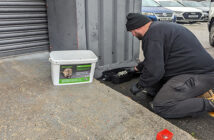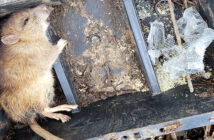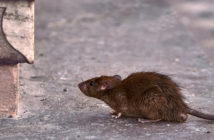The Biocidal Products Committee (BPC) has adopted the opinions supporting the renewal of approvals for eight anticoagulant active substances for use in rodenticide products across the EU. This information was made widely available to the UK in a newsletter dated 30 June 2016 from the Health & Safety (HSE) Biocides team.
The eight anticoagulant active substances included for use in rodenticide products (PT 14): are chlorophacinone; coumatetralyl; warfarin; bromadiolone; difenacoum; brodifacoum; difethialone and flocoumafen.
This announcement follows a meeting held between the 14 and 16 June in Helsinki, Finland of the Biocidal Products Committee (BPC), part of the European Chemicals Agency. The eight anticoagulant active substances (AS) were under review as part of the renewal assessment procedure, required five years after their first review, whereas most other active substances are granted a ten year gap between reviews. The reason being they are all candidates for substitution as they fulfil one or more of the BPR potential candidates for substitution criteria.
One of the key parts of the renewal process was the consideration of the Risk Mitigation Measures (RMM) document and the implementation of its recommendations into the approvals of the AS and eventually, the authorisations of all products across the EU. After considering the RMM, certain use requirements (still to be announced) are likely to be announced, for example: refillable tamper-resistant bait boxes and refill packs will be permitted for amateur use (previous proposal was for non-refillable tamper-resistant bait boxes only) with maximum pack sizes for amateurs to be 300g for wax blocks and 150g for other presentations.
| This success can more than likely be accounted for by the considerable efforts put in by the Cefic Rodenticides Working Group. Pest readers will also recall that earlier this year there was a ‘call to arm‘ for users to express their opinions during the public consultation phase which concluded on 15 February 2016. So, congratulations, your voices were heard. |  |
Whilst this ‘battle’ may have been won the ‘war’ has not. This approval is only for the active substances. The biocidal products themselves now all have to be renewed as well, during which time the process of comparative assessment will be implemented in which products may be removed from the market if the Commission thinks there is another product that is at least as effective and is safer.
All authorisation holders will now need to make additional applications for the re-authorisation of all their products, taking into account any new requirements raised under the active substance renewals. This will necessitate yet more changes to wording on rodenticide labels over the next year or two – so even more reason to always read the label before use.



